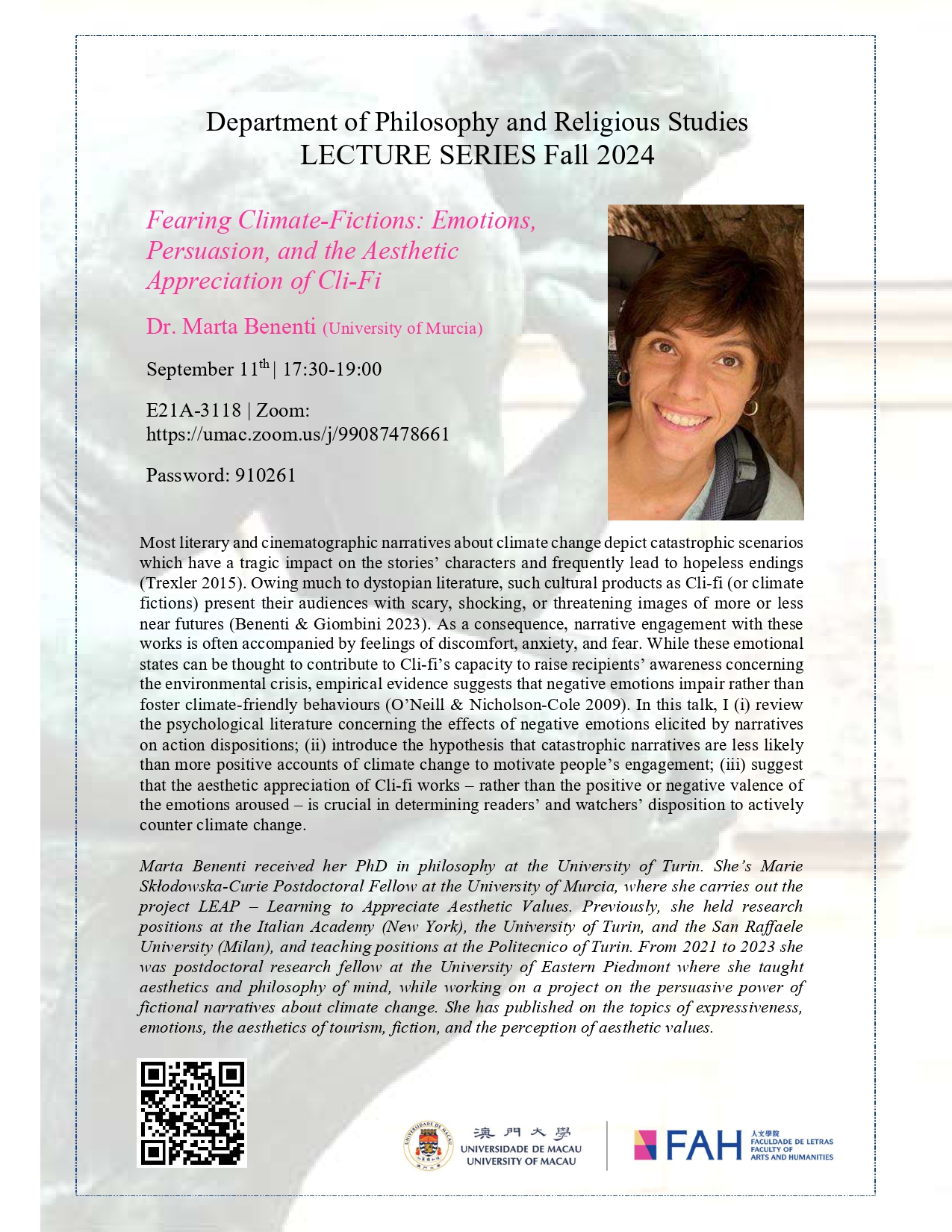

FAH/DPHIL Lecture Series – “Fearing Climate-Fictions: Emotions, Persuasion, and the Aesthetic Appreciation of Cli-Fi” by Dr. Marta Benenti, University of Murcia, Spain
2024-09-11 @ 5:30 pm ~ 7:00 pm
Zoom: https://umac.zoom.us/j/99087478661
Password: 910261
Abstract
Most literary and cinematographic narratives about climate change depict catastrophic scenarios which have a tragic impact on the stories’ characters and frequently lead to hopeless endings (Trexler 2015). Owing much to dystopian literature, such cultural products as Cli-fi (or climate fictions) present their audiences with scary, shocking, or threatening images of more or less near futures (Benenti & Giombini 2023). As a consequence, narrative engagement with these works is often accompanied by feelings of discomfort, anxiety, and fear. While these emotional states can be thought to contribute to Cli-fi’s capacity to raise recipients’ awareness concerning the environmental crisis, empirical evidence suggests that negative emotions impair rather than foster climate-friendly behaviours (O’Neill & Nicholson-Cole 2009). In this talk, I (i) review the psychological literature concerning the effects of negative emotions elicited by narratives on action dispositions; (ii) introduce the hypothesis that catastrophic narratives are less likely than more positive accounts of climate change to motivate people’s engagement; (iii) suggest that the aesthetic appreciation of Cli-fi works – rather than the positive or negative valence of the emotions aroused – is crucial in determining readers’ and watchers’ disposition to actively counter climate change.
Bio
Marta Benenti received her PhD in philosophy at the University of Turin. She’s Marie Skłodowska-Curie Postdoctoral Fellow at the University of Murcia, where she carries out the project LEAP – Learning to Appreciate Aesthetic Values. Previously, she held research positions at the Italian Academy (New York), the University of Turin, and the San Raffaele University (Milan), and teaching positions at the Politecnico of Turin. From 2021 to 2023 she was postdoctoral research fellow at the University of Eastern Piedmont where she taught aesthetics and philosophy of mind, while working on a project on the persuasive power of fictional narratives about climate change. She has published on the topics of expressiveness, emotions, the aesthetics of tourism, fiction, and the perception of aesthetic values.

